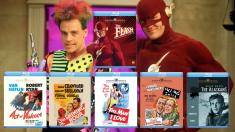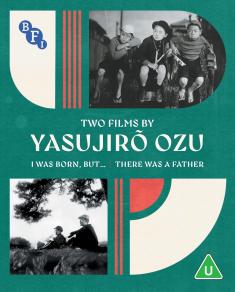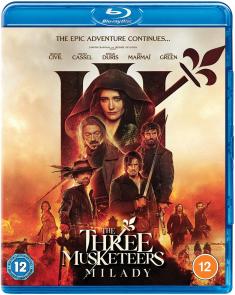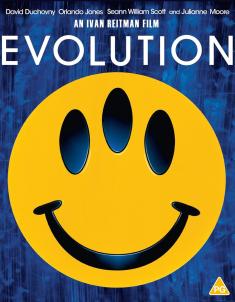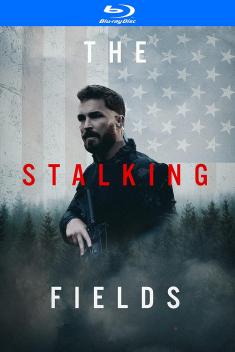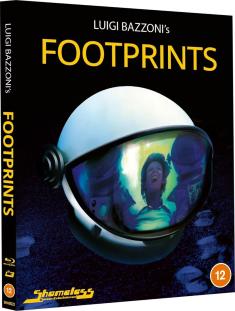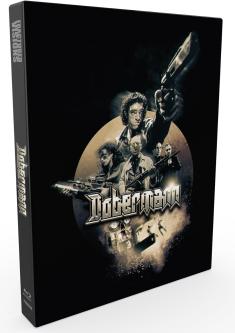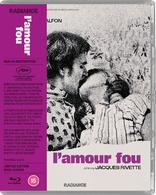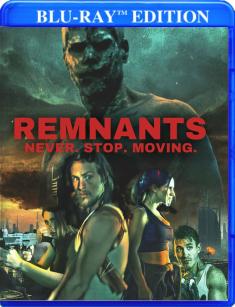A Letter to Three Wives
Overview -As three women head off on a boating trip with a group of children, they receive a letter written by a woman claiming to have stolen one of their husbands. Which one? The letter doesn't say. Faced with the prospect of a shattered life, each woman soul searches throughout the day: Deborah Bishop (Jeanne Crain) feels inadequate amidst her husband's (Jeffrey Lynn) country club set. Everyone sees Lora Mae Hollingsway (Linda Darnell) as a gold digger, including her husband (Paul Douglas). And Rita Phipps (Ann Sothern) has a career that makes her husband (Kirk Douglas) feel neglected to the point of infidelity. All three endure the anguish of uncertainty until the boat trip ends - and the truth is revealed.
Storyline: Our Reviewer's Take

1949 and 1950 were very good years for Joseph L. Mankiewicz. During that golden 24-month span, the once fledgling writer-director won a whopping four Oscars — two each in the screenplay and direction categories for 'A Letter to Three Wives' and 'All About Eve' — and cemented his reputation as Hollywood's most delightfully acerbic social critic. Mankiewicz's incisive skewering of American mores swathed in some of the most deliciously crafted dialogue ever to grace the silver screen makes his movies fascinating and infinitely relatable, no matter how foreign the subject matter. Saddled with universal foibles yet blessed with enviable eloquence, his characters express themselves with conviction and an acid wit that remains razor sharp more than six decades later. It doesn't matter whether Cary Grant or Thelma Ritter speak his lines; the Mankiewicz tone is instantly recognizable.
'All About Eve' will be forever regarded as Mankiewicz's masterpiece, but even though 'A Letter to Three Wives' unfairly lies in its shadow, the latter film remains the director's breakout picture, and stands on its own as a smart, lighthearted examination of postwar suburbia and male-female relationships. In fact, the triumvirate of Jeanne Crain, Ann Sothern, and Linda Darnell could be classified as the screen's original desperate housewives.
When unseen society vixen Addie Ross (venomously voiced by Celeste Holm) sends her three "dear" friends (Crain, Sothern, and Darnell) a cryptic note telling them she's run off with one of their husbands just as the trio boards an all-day river cruise, the women spend the next several hours drifting off into regretful reveries about past episodes in their respective marriages, wondering if their choices, attitudes, and personal deficiencies caused their spouses to stray. Returning war vet Deborah Bishop (Crain) rues her rural upbringing and fears her lack of breeding and difficulty assimilating into the local country club clique might cause her well-to-do husband Brad (Jeffrey Lynn) to pursue the more socially equipped Addie. On the other hand, Rita Phipps (Sothern) ponders whether her demanding yet lucrative job as a radio soap opera writer has made her schoolteacher spouse George (Kirk Douglas) feel neglected and emasculated, forcing him into a "meeting of the minds" with the more intellectual Addie. And finally, wrong-side-of-the-tracks gold-digger Lora Mae Hollingsway (Darnell) muses over whether her tough-as-nails demeanor and fixation on financial security has alienated the affections of her much-older husband Porter (Paul Douglas), who seems to crave a more sophisticated mate — Addie, perhaps?
The film's clever premise, coupled with fine performances and a topnotch script (divided into three interlocking acts), makes it much more than a typical domestic romp. Like the best plays, the movie's situations act as springboards for exploring such ideas as class conflict, upward mobility, burgeoning feminism, and the mass appeal of lowbrow art. Thankfully, though, Mankiewicz avoids the pompous preaching that sinks the far-too-loquacious 'People Will Talk,' his self-indulgent follow-up to 'Letter' and 'Eve.' Instead, he allows his plot to take center stage, and as we peek in on three rocky marriages, scouring each for potential clues, Mankiewicz creates an atmosphere not unlike that of a stylish drawing-room whodunit, stringing us along and keeping us guessing until the climactic big reveal.
The third and final episode featuring Lora Mae and Porter is by far the strongest, and in it Darnell makes a lasting impression as the thick-skinned, tenderhearted social climber who falls in love with the gruff Porter against her better judgment. During her up-and-down career, Darnell's beauty often overshadowed her talent, but here she takes full advantage of Mankiewicz's terrific script and files a memorable and moving portrayal. Ditto Sothern — utterly believable as the spread-too-thin Rita — who uses her natural acting style to diffuse some of Mankiewicz's more stylized lines. It's a treat to see this multi-faceted performer (who spent far too much time languishing in B movies) as a leading lady, and creating marvelous chemistry with on-screen hubby Kirk Douglas.
Though pert and pretty, Crain is the film's weakest link (along with Jeffrey Lynn as her stiff husband), but holds her own as the insecure Deborah, making it easy for us to identify with her character's inferiority complex. Both Paul and a young Kirk Douglas make fine foils for their respective movie spouses, and Thelma Ritter and Connie Gilchrist shine in mouthy character roles.
Often copied but rarely equaled, 'A Letter to Three Wives' showcases Mankiewicz's uncanny ability to take an incisive story and further sharpen its talons. This infectious social comedy may not snap, crackle, and pop like 'All About Eve,' but its identifiable characters and situations keep it both relevant and entertaining.
The Blu-ray: Vital Disc Stats
'A Letter to Three Wives' arrives on Blu-ray packaged in a standard case. Video codec is 1080p/AVC MPEG-4 and default audio is DTS-HD Master Audio 1.0. Once the disc is inserted into the player, the static menu with music immediately pops up; no previews or promos precede it.
Video Review

'A Letter to Three Wives' underwent a restoration prior to its 2005 DVD release, and it was a good one, but the picture quality still pales when compared to this pristine Blu-ray transfer. Though this 1080p/AVC MPEG-4 effort from Fox looks like it might have been struck from the same source material, additional clean-up seems to have been performed. The old DVD sported mild print damage in the form of nicks and marks, but all that has been scrubbed away, leaving a vibrant, lush, antiseptic image distinguished by marvelous clarity, excellent contrast, and just enough grain to maintain the look and feel of celluloid. Also in the good news category, there's no longer a missing frame at the 55m:45s mark.
A wide gray scale enhances depth and sharpens up background elements. Though brightness tends to vary a bit, blacks remain deliciously rich - the dinner jackets of the men and Ann Sothern's cocktail dress are perfectly rendered - and whites exhibit a pleasing boldness. (The delicate appliqués and sequins on one of Sothern's white gowns are easy to discern and blend perfectly into the fabric.) Shadow delineation is quite good, with no crush creeping into the picture, and close-ups are wonderfully crisp.
No noise intrudes, halos and artifacts are absent, and any digital doctoring escapes notice. Once again, Fox has taken great care with one of its classic titles, producing a high quality transfer that will please the most discriminating classic film aficionado and is well worth an upgrade.
Audio Review

The DTS-HD Master Audio 1.0 track supplies good-quality sound, but 'A Letter to Three Wives' is hardly an audio-lover's dream. Mankiewicz tosses in a few clever effects to transition the women into their flashbacks, and the track renders them well. His superb dialogue - the focal point of the film - is always clear and comprehendible, and ambient sounds, such as squealing kids, nicely enhance exterior scenes. A bit of bass comes into play when the train rumbles by Lora Mae's house, but distortion is kept at bay, and any hiss, pops, or crackles have been carefully erased. Alfred Newman's score lends the film lovely atmosphere and enjoys fine presence, but it's sparingly employed.
Though there aren't many bells and whistles on this track, it's still a solid effort, and sounds much younger than its 64 years.
Special Features

All the extras from the 2005 DVD release (with the exception of a restoration comparison) have been ported over to this Blu-ray edition, and it's quite a fine selection of material.
- Audio Commentary – Christopher Mankiewicz (son of the director), biographer Kenneth Geist (whose superb book Pictures Will Talk should be required reading for aficionados of both Mankiewicz and classic film), and Mankiewicz historian Cheryl Lower provide an informative commentary that touches upon many pertinent points. Unfortunately, all of the participants recorded their remarks separately, resulting in a rather dry, nuts-and-bolts discussion that certainly pales when compared to Mankiewicz's lively film dialogue. They discuss the movie's social issues, how Mankiewicz weaves his personal experiences and pet peeves into his scripts, and the writer-director's amazing ability to identify with and craft strong female characters. The commentary could use more anecdotes and personal intimacy (especially from Christopher Mankiewicz, who stays surprisingly mum much of the time), and, as a result, only those just discovering the filmmaker will learn much from this ho-hum track.
- Documentary: "Linda Darnell: Hollywood's Fallen Angel" (SD, 44 minutes) – By far the disc's best extra is this 1999 documentary, a particularly riveting installment of A&E's 'Biography' series. Film clips, photos, and interviews with Darnell's biographer, adopted daughter, and sister bring this underrated movie queen to life, painting an absorbing portrait of a gorgeous, talented, yet often unhappy and tormented woman, who weathered more than her share of Hollywood hard knocks. The profile details Darnell's exploitation by her pushy stage mother; discovery by a Fox talent scout at the tender age of 15; marriage at 19 to a 42-year-old cameraman; on-screen transformation from "virgin" to "slut"; ill-fated romances with Howard Hughes and Joseph Mankiewicz (termed by some as "the love of her life"); and debilitating alcoholism. We learn how the demise of the studio system in the early 1950s left her career in limbo, and how financial mismanagement left her, for a time, nearly destitute. Tragically, Darnell died in a fire at a friend's townhouse in suburban Chicago at age 41, yet this fine documentary renews our interest in one of Hollywood's all-but-forgotten leading ladies, and makes us properly appreciate her contributions to many fine films.
- Vintage Newsreel Clip (SD, 1 minute) – Brief Fox Movietone News footage from the 1950 Oscar ceremony shows Mankiewicz accepting an award, along with fellow winners Olivia de Havilland ('The Heiress'), Broderick Crawford ('All the King's Men'), and Dean Jagger ('Twelve O'clock High').
- Theatrical Trailer (SD, 3 minutes) – The movie's clever original theatrical trailer completes the extras package.
Final Thoughts

Witty, sophisticated, and unapologetically adult, 'A Letter to Three Wives' still stands as one of Hollywood's most polished and perceptive comedies. Sure, 'All About Eve' eclipses it, but this engrossing domestic study from writer-director Joseph L. Mankiewicz deserves the accolades it received, especially the Best Screenplay Oscar. Fox's Blu-ray presentation improves upon the previous DVD release, with a sparkling black-and-white video transfer, fine audio, and a solid spate of extras, all of which make it easy to stamp this memorable 'Letter' with a hearty recommendation.
